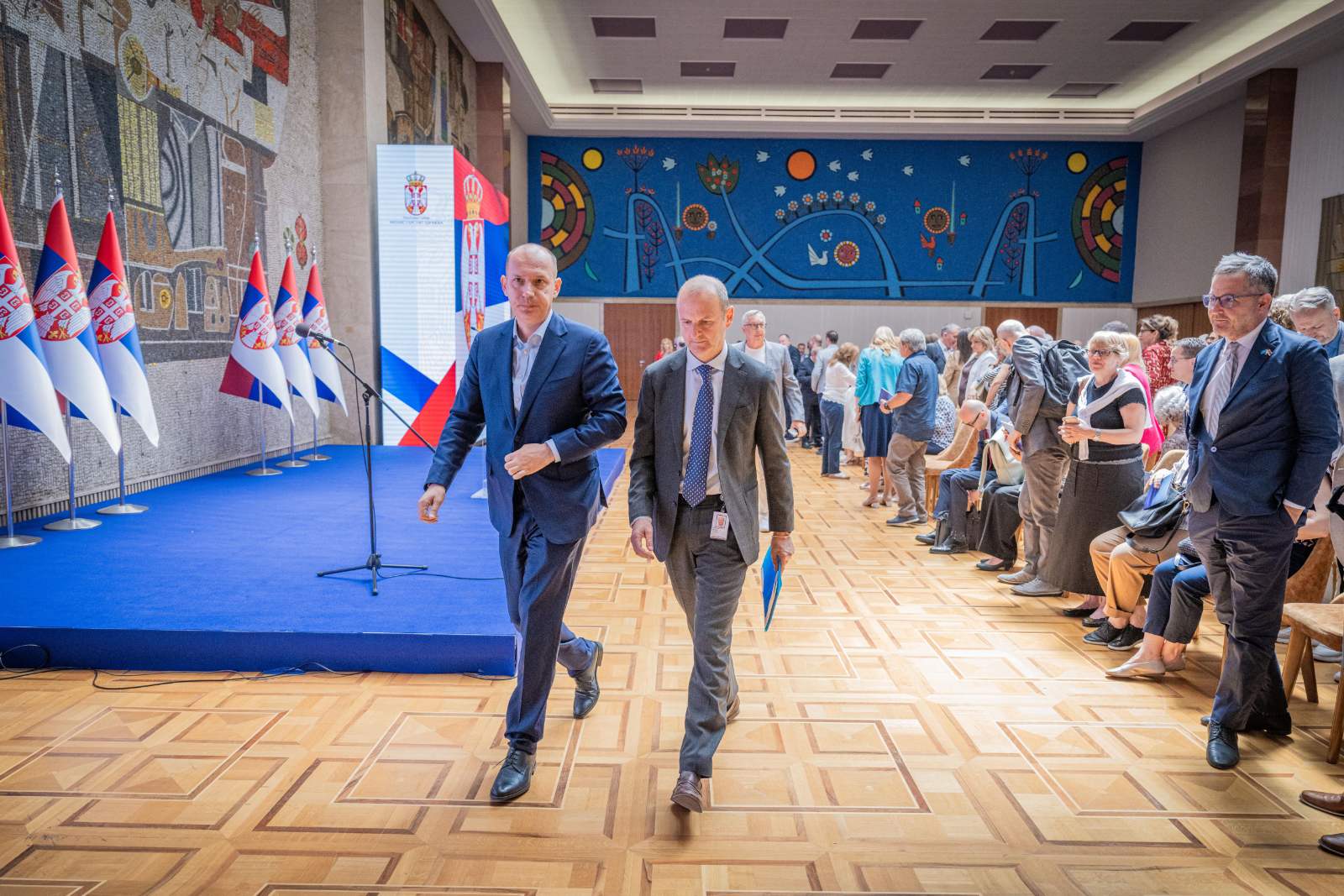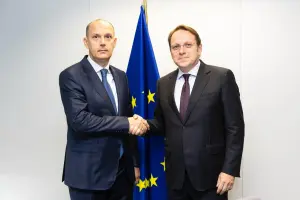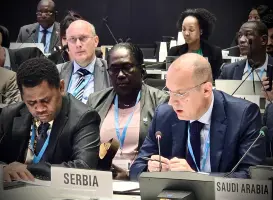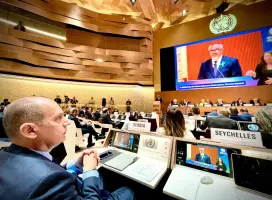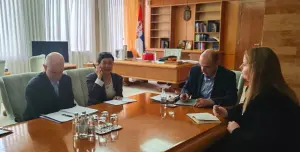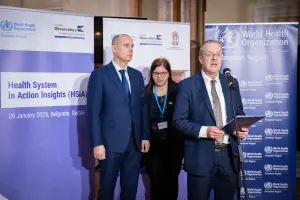BELGRADE, 4 June (Tanjug) - Zlatibor Lončar, Minister of Health, stated today that all healthcare systems, Serbian included, had had to adapt quickly to new circumstances during the Covid-19 pandemic and find a solution that would meet the needs of citizens in a time of major health crisis, while the the World Bank Serbia Country Manager, Nicola Pontara, highlighted that Serbia was the Western Balkans leader in innovation.
World Bank Country Manager Pontara: Serbia - Western Balkans Leader in Healthcare and Innovation
In his opening address at the Serbia Emergency Covid-19 Response Project closing conference, Lončar said that the project, implemented from the World Bank loan funds, helped provide capacities and resources of crucial importance during the crisis, but also those that lastingly improved Serbia's healthcare infrastructure.
"During the most difficult months, three new Covid hospitals opened in an very short period - in Belgrade, Kruševac and Novi Sad. This considerably increased the available bed capacity, which was of crucial importance in moments of greatest pressure on the healthcare system. Furthermore, over 300 ambulances and 2,000 hospital beds for local hospitals were provided under the project,” Lončar said.
The minister said that 135 X-ray machines, 55 CT scanners and 32 ultrasound devices were provided during the crisis.
"This enabled health services provision, as well as a more precise and faster assessment of patients' health status. Employees have been trained to work on the new equipment, which further strengthened the institutions in which they work", he explained.
Lončar said that a key part of the response to the pandemic was providing vaccines and carrying out immunisation. "Serbia secured five types of effective vaccines, allowing citizens choice and equal access. The entire process was carried out quickly, in an organised manner and in accordance with expert recommendations," the Minister of Health emphasised. As he said, Serbia’s act of solidarity is of particular value, as it enabled vaccination for citizens of neighbouring countries, which was an important example of regional cooperation in times of global crisis. He added that the first biosafety level 3 laboratory in Serbia was established at the "Torlak" Institute.
"Its establishment represents an important step in strengthening diagnostic capacities, especially in situations in which rapid and reliable identification of high-risk microorganisms is required", Lončar highlighted.
As he said, the healthcare system has been significantly improved thanks to the Serbia Emergency Covid-19 Response Project.
"We have significantly strengthened the foundations of public health, not only for the challenges we faced, but also for those which may come", Lončar pointed out.
The World Bank Serbia Country Manager, Nicola Pontara, stated that the project had achieved impressive results regardless of the fact that it had been launched in 2020, during one of the largest pandemics in recent history.
"We should all be proud of this project’s results because it is based on it that Serbia, managed ti mitigatw the impact of Covid-19, but also improve its healthcare system and its resilience“, he said.
According to him, the Project funds were used to purchase diagnostic equipment that is of crucial importance.
"This not only replaces diagnostic equipment that was used intensively during the pandemic, but also improves the ability to diagnose all conditions in the post-pandemic period," Pontara stated.
He assessed that the establishment of the biosafety level 3 laboratory at the "Torlak" Institute improved the possibility of detecting future pandemics.
"In this way, Serbia's research potential and capacity have been improved, and it enabled a faster, high-quality and coordinated response to future pandemics and other emergencies," Pontara emphasised.
The World Bank Serbia Country said that the Covid-19 pandemic was now over and that, in Serbia and globally, the treatment of non-communicable diseases is once again dominant. As he said, in the previous 20 years, a series of improvements had been made to the Serbian healthcare system, in which the World Bank had also participated, and that advances in radiotherapy and non-communicable diseases treatment were crucial.
"We will continue to support Serbia in the new project on non-communicable diseases prevention and control, which will improve healthcare and treatment. This project is focused on the primary and secondary healthcare levels, and in this way, non-communicable diseases prevention and control can be provided to citizens closer to where they live," Pontara stated.
He highlighted that the World Bank would provide support to Serbia with the aim of creating a more effective, efficient, equitable and resilient healthcare system.
Jelena Drulović Clinical Centre of Serbia Director, emphasised that Covid-19 posed a huge problem globally, but that Serbia had provided its citizens with adequate immunisation, diagnostics and treatment.
The closing of the conference featured the presentation of the Guidelines for Improving Communication between Healthcare Professionals and the Blind, Visually Impaired or Deaf-Blind People, written by the Serbian Uion of the Blind President, Milan Stošić.
During the presentation of the Guidelines, hope was expressed that the document would help medical professionals better understand the issues faced by the blind and visually impaired people, as well as to resolve the doubts that medical professionals have when they encounter them.


